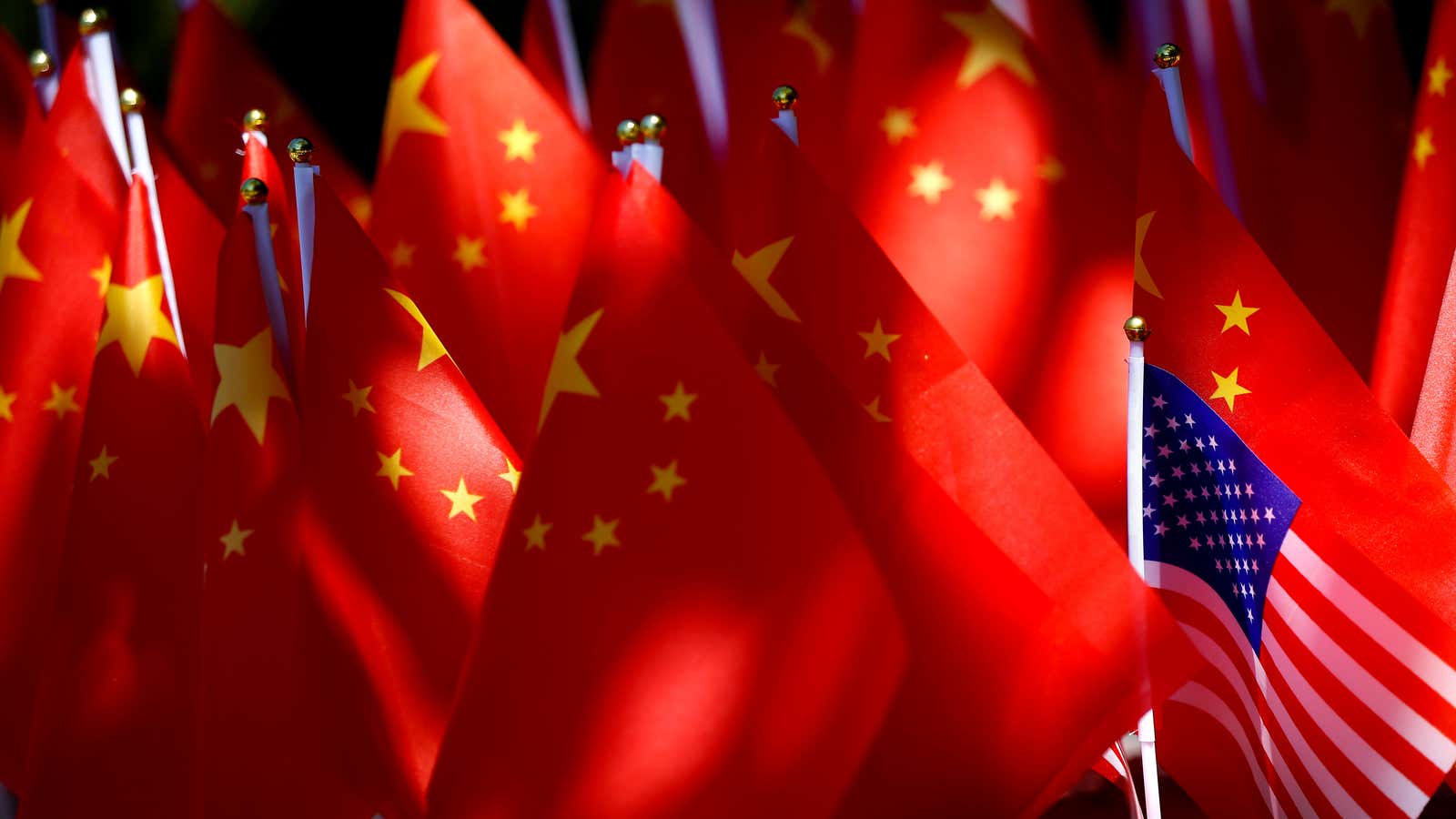For the first time (paywall), a Chinese spy has been extradited to the US to face charges.
The US Justice Department revealed yesterday (Oct. 10) that a senior Chinese intelligence officer has been arrested and charged with attempting to commit economic espionage and steal trade secrets from US aviation and aerospace companies.
Yanjun Xu—who also went by the aliases Qu Hui and Zhang Hui—was a deputy division director in China’s civilian spy agency, the Ministry of State Security. In April, he was lured by US authorities to Belgium, where he was arrested, and extradited to the US on Tuesday (Oct. 9).
“This case is not an isolated incident,” John Demers, assistant attorney general for national security, said in a statement. “It is part of an overall economic policy of developing China at American expense. We cannot tolerate a nation’s stealing our firepower and the fruits of our brainpower.”
At least three American companies, including a GE aviation subsidiary, were targeted by Xu. According to the indictment, beginning in December 2013, Xu attempted to recruit experts in the aviation field by pretending to be an official with a Chinese science and technology association, asking them to travel to China to deliver university lectures.
An affidavit (pdf) by FBI special agent Bradley Hull reveals:
XU, and others, would pay the “experts” stipends and would arrange for and pay expenses associated with their travel to China. To achieve their objective, which was to obtain specific aviation technology documents and information, XU and others exchanged messages regarding the types of information that they wanted to obtain, and actively discussed methods for obtaining the desired information.
In March 2017, Xu started emailing a GE Aviation engineer, who traveled to China to meet him in May and June of that year and was paid $3,500 for travel and other expenses, according to the indictment.
Then in January of this year, Xu began asking the engineer, who is no longer employed at GE Aviation, for information and company documents pertaining to “system specification, design process,” and later sent a list of questions regarding fan blade design. In February, Xu began making plans to meet the engineer in Europe, where he would be for a business trip, and later asked if the engineer could bring files copied from his work computer to a portable hard drive to their meeting. GE said it started cooperating with the FBI early in the investigation, which has spanned more than a year, and told the Washington Post the impact was minimal “thanks to early detection” (paywall).
The indictment comes as the US ratchets up warnings to China on intellectual property, with vice president Mike Pence last week saying that Chinese security agencies have “masterminded the wholesale theft of American technology.” The US is also taking steps to make it harder for foreign firms to acquire sensitive technology via investments, by expanding the kinds of transactions open to review, a move that also appears to be aimed at China.
